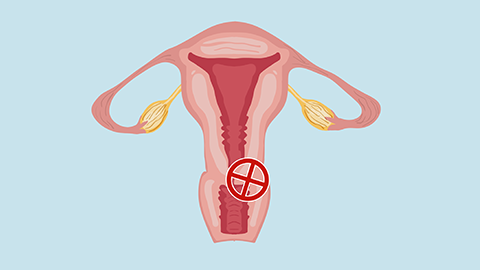How to treat anovulatory amenorrhea
Generally, anovulatory amenorrhea may be caused by excessive dieting for weight loss, psychological stress, polycystic ovary syndrome (PCOS), hyperprolactinemia, premature ovarian failure, and other factors. It is recommended to seek medical attention promptly, identify the underlying cause, and follow a doctor's guidance to improve the condition through general management, medication, and other treatments. Specific causes are analyzed as follows:

1. Excessive dieting for weight loss: Long-term insufficient caloric intake leads to a lack of raw materials for hormone synthesis in the body, thereby inhibiting ovulation and causing amenorrhea. Stop restrictive dieting and develop a balanced dietary plan that ensures adequate intake of protein, fats, and vitamins. Consume more foods such as lean meat, eggs, and soy products, and gradually restore normal body weight.
2. Psychological stress: Sudden major emotional trauma or chronic anxiety can affect hypothalamic function and disrupt the ovulation mechanism. Engage in one hour of relaxation activities daily, such as meditation or yoga, avoid staying up late, maintain regular作息 (daily routines), and seek psychological counseling when necessary to relieve mental stress.
3. Polycystic ovary syndrome (PCOS): Endocrine disorders lead to elevated androgen levels, resulting in polycystic changes in the ovaries and anovulation. Follow medical advice to take medications such as ethinylestradiol cyproterone acetate tablets, dydrogesterone tablets, and spironolactone tablets to regulate hormone levels. At the same time, control body weight and reduce intake of high-sugar and high-fat foods.
4. Hyperprolactinemia: Abnormally elevated prolactin levels suppress gonadotropin secretion, leading to cessation of ovulation. Take medications such as bromocriptine mesylate tablets, vitamin B6 tablets, and cabergoline tablets under medical supervision to lower prolactin levels, and regularly recheck hormonal indicators.
5. Premature ovarian failure: Ovarian function declines prematurely, follicles become depleted, and ovulation ceases, often accompanied by symptoms such as hot flashes and insomnia. Follow medical advice to undergo hormone replacement therapy with medications such as estradiol valerate tablets, conjugated estrogens tablets, and dydrogesterone tablets. In cases of severe intrauterine adhesions, hysteroscopic adhesiolysis may be required to restore the uterine environment.
In daily life, avoid intense exercise and overexertion, and maintain emotional stability. Keep track of physical changes and medication responses, and undergo regular gynecological ultrasound and hormone level tests. Increase intake of foods rich in phytoestrogens, such as black beans and nuts, to help regulate endocrine function.




